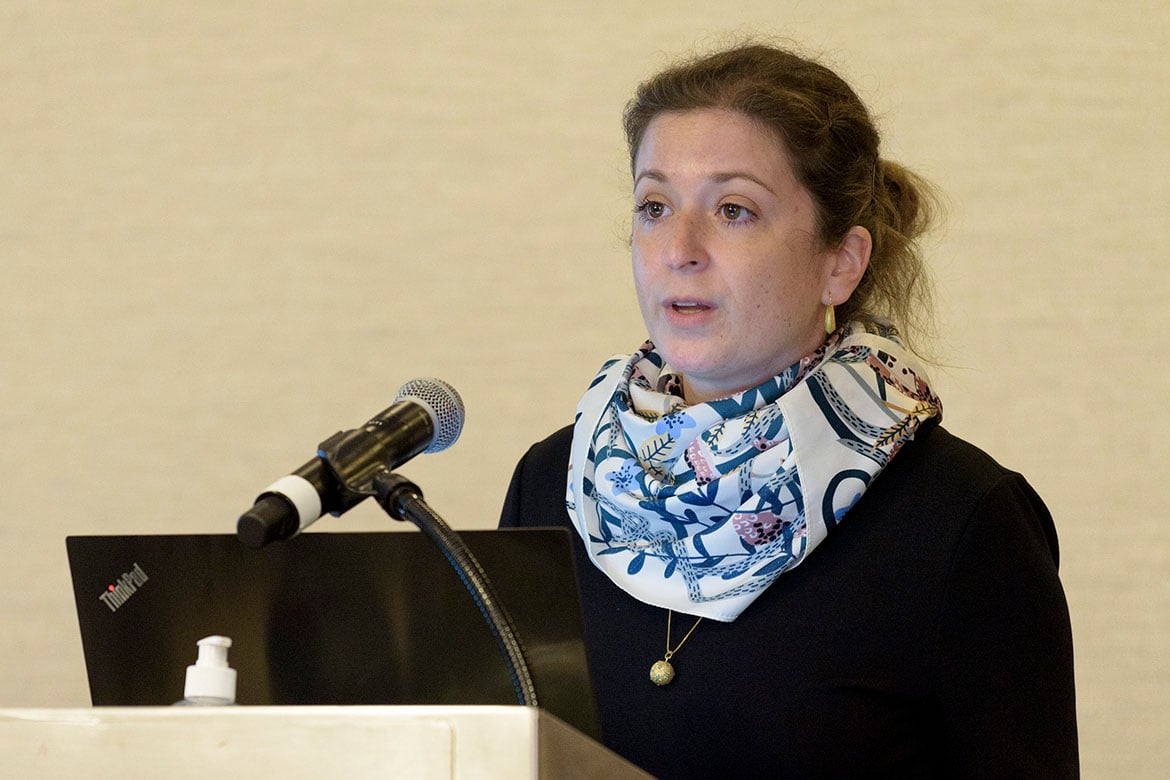Waking up from a four-hour cardiac procedure, Amit Ghose, MD, felt disoriented and confused. “I asked: ‘Why am I not in Lansing, rounding on my patients,’” said the internist, a Michigan liaison for the AMA Senior Physicians Section who is in his 60s.
A nurse, assuming Dr. Ghose was in pain, administered an opioid analgesic pain reliever.
“The next thing I knew I was climbing the wall,” said Dr. Ghose, an alternate delegate for the Michigan State Medical Society and an AMA member. His delirium continued into the next day. Family asked him questions that he answered incorrectly. It took him two more days to shake off his symptoms.
What Dr. Ghose experienced is not uncommon in older patients following a surgery. He and other presenters discussed anecdotes, causes and potential solutions during an AMA Senior Physicians Section-sponsored education session.
Statistics and definitions
Post-operative delirium poses challenges and concerns to doctors and patients alike in the U.S. and worldwide, said Susana Vacas, MD, PhD, a neuroanesthesiologist at Massachusetts General Hospital and Harvard Medical School.
Advances in surgery and anesthesia can improve function and quality of life for older patients. However, a potential risk to brain health exists, she said. Patients with perioperative neurocognitive disorders have a 7% higher risk of death in the first year after surgery, she said.
Post-operative or prolonged delirium usually presents 24 to 72 hours after a surgical procedure, said Matthew D. Gold, MD, a neurologist and delegate of the AMA Organized Medical Staff Section.
Incidence is higher after age 60 and most prevalent in orthopaedic or cardiac procedures, said Dr. Gold, an AMA member. In honor of Older Americans Month, the AMA celebrates senior physician members in the month of May.
What causes delirium following surgery
Trauma-induced inflammation appears to be the underlying mechanism of post-operative delirium, said Dr. Vacas during her presentation at the 2022 AMA Annual Meeting.
Following trauma, such as a surgery, “the bone marrow-derived macrophages cross the disruptive blood-brain barrier and reach the brain, where they can damage the hippocampus and interfere with processes responsible for learning and memory,” she said.
This syndrome appears to affect 26% of all patients. While the reasons aren’t clear, a variety of risk factors play a role in the etiology of delirium.
Predisposing factors include age, cognition, frailty, education, poor nutrition, alcohol-use disorder, depression and comorbidities. Type of surgery and depth of anesthesia can affect risk. Post-operative factors may include pain, sepsis or infection, electrolyte imbalance, and whether the patient had invasive lines, restraints, immobility problems or a transfusion.
Absence of family members following a surgery is also a risk factor, said Dr. Vacas.
Also at the 2022 AMA Annual Meeting, the House of Delegates voted to encourage the development of opportunities for medical students, residents and physician fellows to train in senior living communities such as nursing homes and assisted living facilities—as appropriate to the educational objectives of the program.
For example, the University of North Dakota School of Medicine & Health Sciences offers a fellowship in geriatric medicine, which is a 12-month program that leads to board eligibility in geriatrics. The fellowship site is Sanford Health, which is a member the AMA Health System Program that provides enterprise solutions to equip leadership, physicians and care teams with resources to help drive the future of medicine.
Interventions before, during, after surgery
About 30%–40% of delirium cases in the U.S. are preventable, said Dr. Vacas.
Best practices and interventions should begin before surgery and extend well into the recovery period, she advised. This is a collective effort that involves the patient, family members and an interdisciplinary health care team.
Physicians should be approaching this through a perioperative care pathway, she added. Preoperative interventions may include a risk assessment, avoiding high-risk medications, or using a geriatrician in the care team. Physicians should be evaluating patients with hypertension, glycemia or depression to see if they need additional treatment or counseling.
Look over your patient’s medication regimen to make sure that none of the drugs they take will cause a problem with surgery, advised Dr. Vacas.
During surgery, physicians should be controlling for blood pressure and glucose levels and avoiding anesthetic overdoses or high-risk medications. Post-surgery, they should take steps to control pain and optimize sedation regimens. Family members can offer support before and after surgery.
Doctors should advise patients to get lots of rest before surgery and bring an eye mask and ear plugs to the hospital to help with sleep.
Link between delirium, dementia
Dr. Vacas cited several studies that suggested a link between post-operative delirium and subsequent cognitive dysfunction, including one published in the May 2019 issue of Anesthesia & Analgesia.
Research to date does not suggest a strong correlation between incidence of post-operative delirium and rapidly progressive dementia in otherwise intact patients, said Dr. Gold.
“Treating delirium may prevent some post-operative cognitive dysfunction and long-term cognitive impairment,” he suggested.




